Senegal’s Ministry of Foreign Affairs announced on Tuesday that its consulates overseas will be temporarily closed following “a series of aggressions that caused serious damage.”
Angry demonstrations have been held outside Senegalese consulates in Paris, New York, Milan, and other cities over the past week following the arrest of opposition leader Ousmane Sonko.
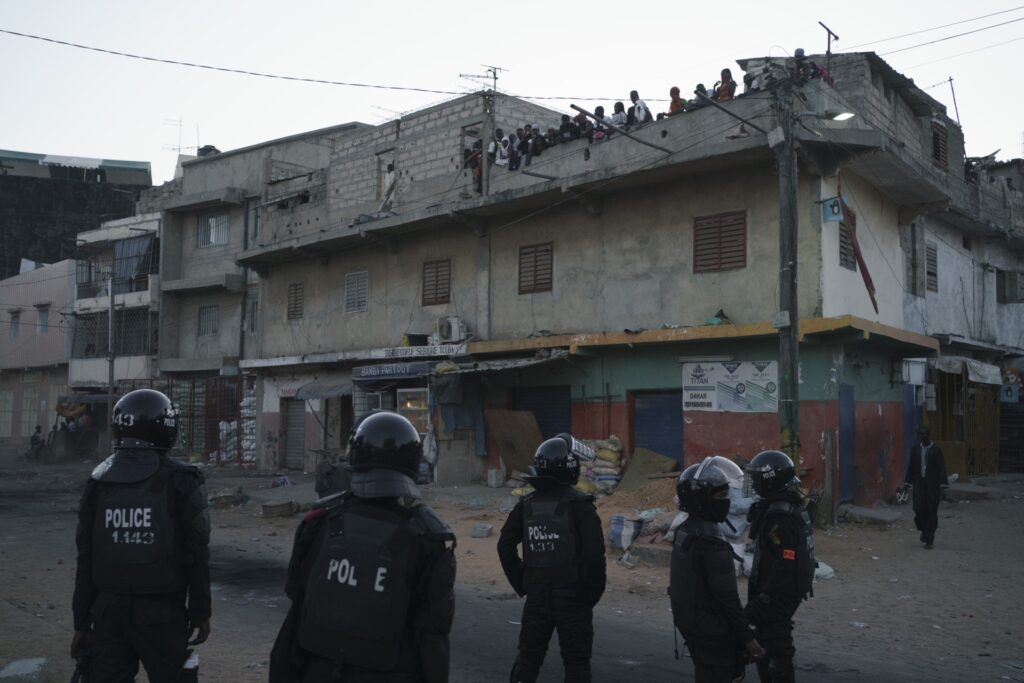
Police in riot gear stand guard during clashes with demonstrators in Dakar, Senegal, on June 3, 2023. (AP Photo/Leo Correa)
“These acts caused serious damage, particularly at the Senegalese Consulate General in Milan, where the machines used to produce passports and national identity cards were destroyed. The service will resume as soon as material and safety conditions permit,” the ministry said.
According to Italian media reports, about 40 Sonko supporters assembled at the consulate in Milan carrying Senegalese flags and anti-government signs. The demonstrators managed to break into the consulate, ransack its offices, attack the consul general, and start a fire before the police were able to intervene.
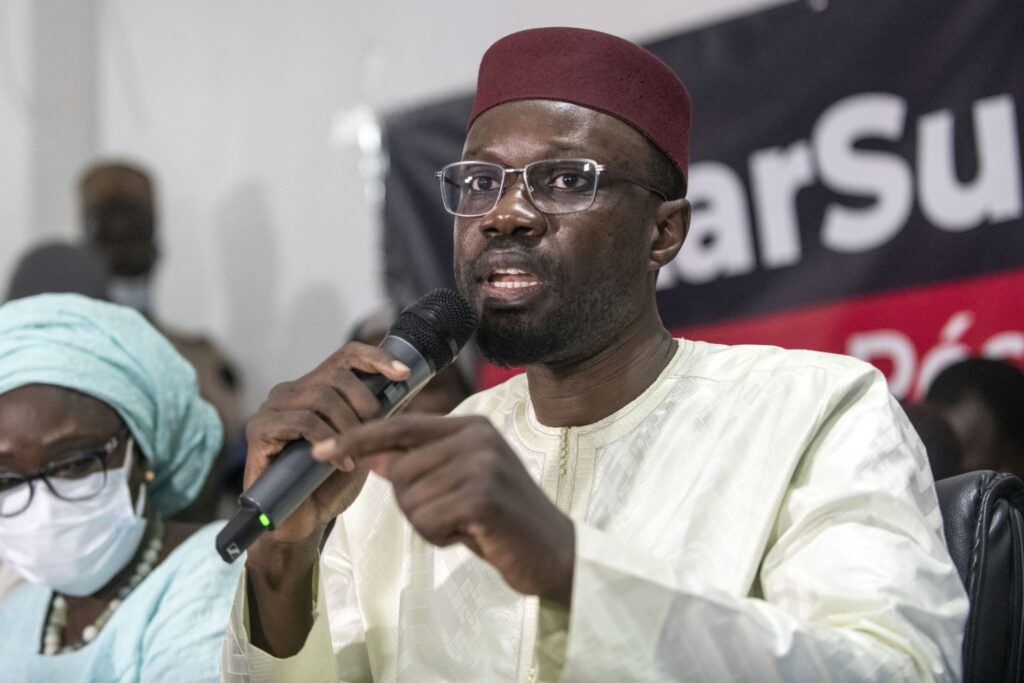
Senegalese opposition leader Ousmane Sonko addresses journalists following his release from police custody in Dakar, Senegal on March 8, 2021. (AP Photo/Sylvain Cherkaoui)
France24 described social media videos posted on Friday that “showed a small group of protesters in Paris throwing flour at a Senegal embassy car and its passengers.”
Sonko, a 48-year-old former tax inspector dismissed from his position in 2016, is a fast-rising star in Senegalese politics. Soon after he lost his government job, he was elected to parliament, became mayor of a city, and came in third place during the 2019 presidential election. He angered the winner of that election, President Macky Sall, by accusing him of plotting to defy constitutional term limits and remain in power after his second term expires in February 2024.
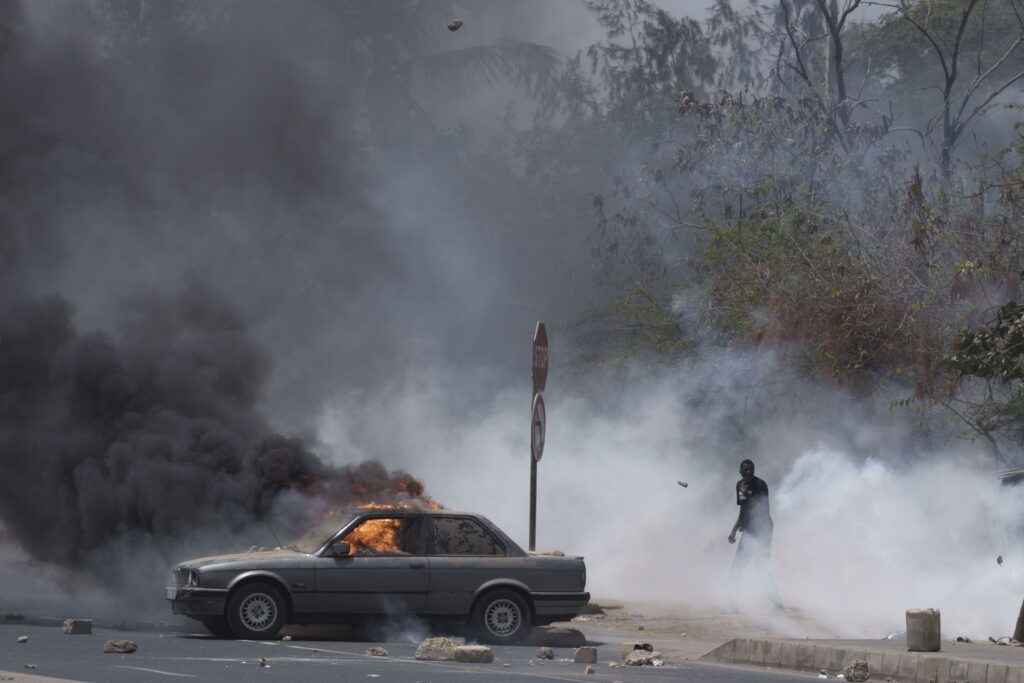
A demonstrator walks through smoke of tear gas during clashes with riot policemen on the street in front of the Cheikh Anta Diop University campus in Dakar, Senegal, Thursday, June 1, 2023. (AP Photo/Leo Correa)
Sonko is prominent among opposition activists who accuse the Sall administration of “retreating from democracy” by arresting opponents, harassing journalists, and banning demonstrations. Sonko is very popular with young Senegalese, so when he was accused of raping and threatening a female massage parlor employee and “corrupting young people” because the victim was under 21, political tensions in Senegal came to a boil. Sonko’s supporters passionately believe the charges against him were manufactured to force him out of the presidential election.
Sonko was cleared of the rape charge at his trial on June 1, which he boycotted by remaining home during the proceedings, but he was found guilty of “corrupting youth” and sentenced to two years in jail. The verdict also banned him from running in the 2024 presidential election, as his supporters feared. Since he did not attend the trial, Sonko is not permitted to file an appeal.
Protests broke out in the capital city of Dakar as soon as the verdict was announced and spread rapidly across the country. Demonstrators set cars on fire and hurled rocks at the police, who responded with tear gas. The police denied allegations that live ammunition was fired at the protesters.
At least 16 deaths were reported during the riots, which reportedly began to wind down on Monday. There were also injuries and at least one death before the trial when Sonko, who is still the mayor of a city called Ziguinchor, led a “freedom caravan” from there to Dakar.
Opposition leaders called for calm but accused the government of using excessive force against demonstrators, and they called on Sall to reduce tensions by clearly stating he will not seek an unconstitutional third term in the next election.
“We are seeing violence and upheaval in our typically peaceful streets. We have seen death. This is not good for our people. Nor is it good for Senegal’s global reach. This situation will only worsen if President Macky Sall announces a bid for a third term. It would be unprecedented and deeply damaging for Senegal,” opposition presidential candidate Idrissa Seck said on Monday.
“Our country is being pulled in two extreme directions. This is not who we are. Let us remember that we are a peaceful nation. We honor law and order, we cherish peace, and we abstain from violence. The future of Senegal depends on our unity of purpose,” Seck told his supporters on Twitter.
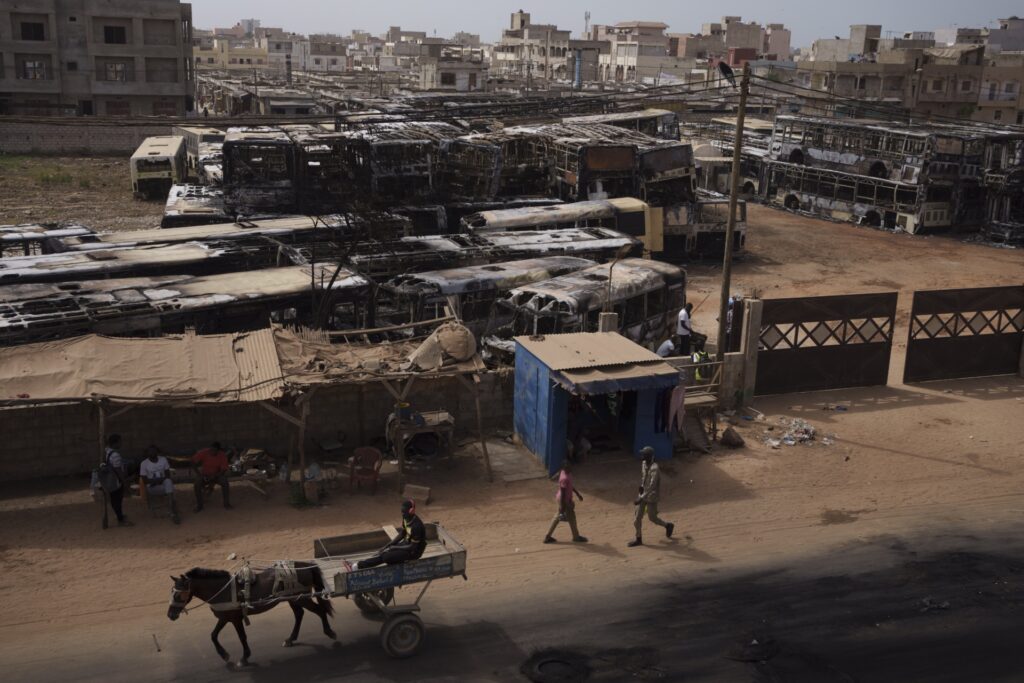
A man drives his horse-drawn cart past burned buses, parked in a lot for out-of-service vehicles, that were set on fire during protests in Keur Massar, Dakar region, Senegal, on May 16, 2023. (AP Photo/Leo Correa)
Sonko’s African Patriots of Senegal for Work, Ethics, and Fraternity (PASTEF) party, on the other hand, denounced the verdict against Sonko as a “political plot” and told its followers to “stop all activity and take to the streets.”
Sonko disappeared from public view after the verdict was announced, but he reportedly has not been taken into custody. This strikes some of his supporters as odd – possibly a gambit to keep him from requesting a retrial, which under Senegalese law he cannot do until he has been imprisoned.
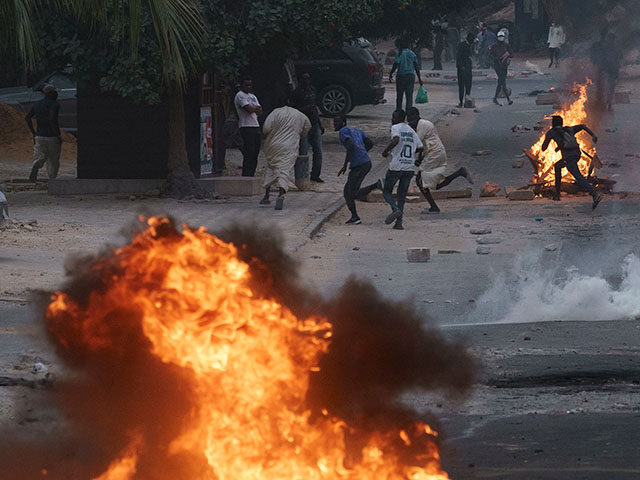
COMMENTS
Please let us know if you're having issues with commenting.